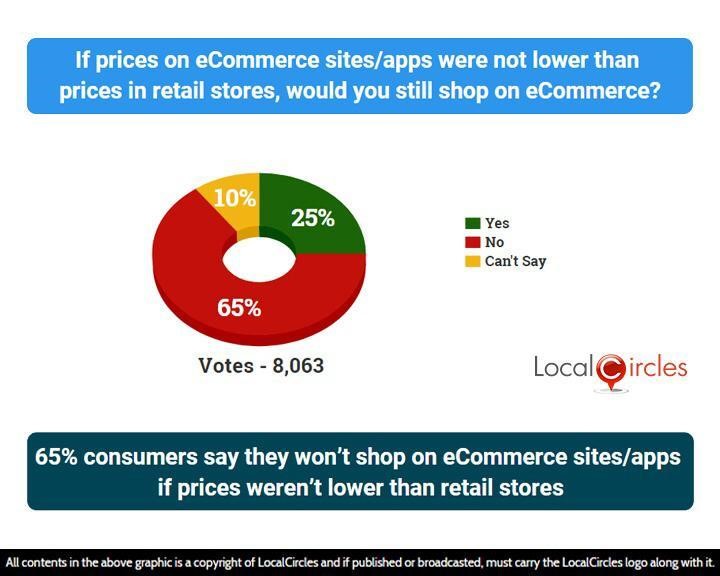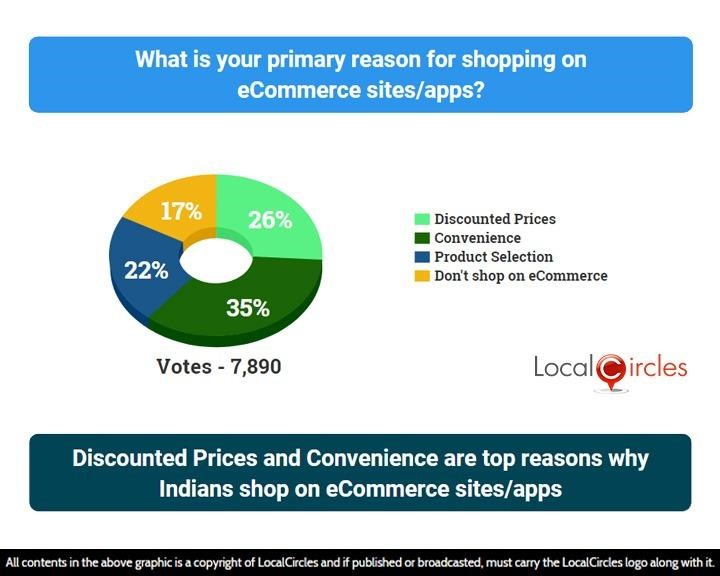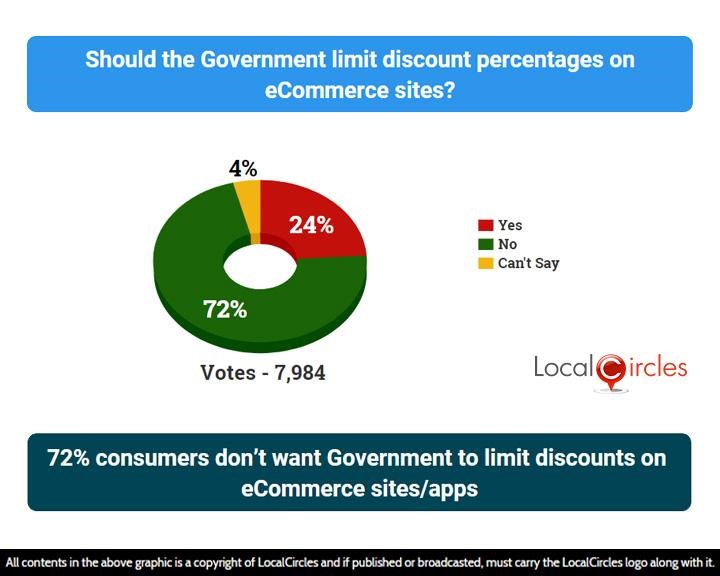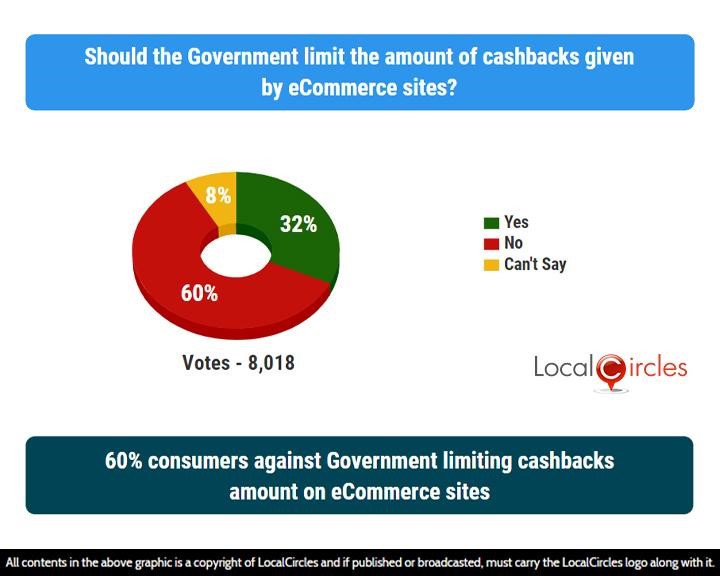Indian consumers expect ecommerce sites to offer better prices than retail stores
- • 65% consumers say they won’t shop on ecommerce sites if prices weren’t lower than retail stores
- • Discounted Prices and Convenience top reasons for consumers to shop on ecommerce
- • Majority consumers don’t want Government to limit discounts and cashbacks on ecommerce
September 25, 2019, New Delhi: The festive season is right around the corner and a big part of the festive season is shopping. Since the rise of ecommerce, buying those gifts for your loved ones, or buying the long due home appliances has become very easy. Many people prefer not to go to the crowded markets during this time and buy from various ecommerce sites which home deliver the products.
Most of the major ecommerce sites like Amazon, Flipkart, Snapdeal, Myntra, etc. have announced the phase 1 of their upcoming festive sales with a few more to follow. While ecommerce sites are in the process of kickstarting their sales events, the retailers and trader associations in India want the Government to intervene and ban such sales.
LocalCircles has been actively gauging the consumer pulse, especially in light of the ecommerce consumer protection guidelines that are under discussion and the pending ecommerce policy. For anyone writing on the subject or making policies, it is very important to under what the consumer wants. Towards that, LocalCircles has conducted a short consumer survey to understand this pulse of the consumer on ecommerce where over 32,000 responses have been received from more than 15,000+ voters.
The first question asked consumers if they would still shop on ecommerce sites if their prices were not lower that retail stores. 65% answered in a ‘no’ while 25% answered in a ‘yes’. 10% were unsure about it. It is very clear that the Indian consumer expects ecommerce sites to be more efficient than offline retail and also pass some of the cost savings to them in form of discounts.
65% consumers say they won’t shop on eCommerce sites/apps if prices weren’t lower than retail stores

The next question is focused on understanding what the primary reason was for consumers to shop on ecommerce sites/apps independent of offline retail. 26% said it was discounted prices, 35% said convenience, 22% said product selection while 17% said they don’t shop on ecommerce sites at all. This is an important finding, as 2 years ago, consumers selecting discounts to be the primary reason were twice as that of who said convenience.
Discounted Prices and Convenience are top reasons why Indians shop on eCommerce sites/apps

The Competition Commission of India has been keeping a close eye on the discounting techniques of the ecommerce sites. CCI feels that deep discounts undermine the value of the product and forces the consumers to focus on only the price while buying, which can turn out to be harmful for the businesses in the long run.
The next question asked if the government should limit discount percentage on ecommerce sites. 72% voted against it while 24% voted for it. 4% were unsure.
72% consumers don’t want Government to limit discounts on eCommerce sites/apps

Cashbacks are a big component of an ecommerce company’s marketing campaign. On one hand it encourages repeat visits by customers, and on the other hand it helps customers get better discounts. The next question asked if the Government should limit the amount of cashback given by ecommerce sites. 60% answered in a ‘no’ while 32% answered in a ‘yes’. 8% did not have an opinion on it.
60% consumers against Government limiting cashbacks amount on eCommerce sites

Both ecommerce policy as well as ecommerce consumer protection guidelines want ecommerce marketplaces to ensure that they are not influencing the selling price or listing price of the seller. However, providing a cashback to use a wallet or a particular card or mode of payment are legitimate ways to attract consumers. Similarly, if the seller is offering a discount independent of the marketplace, those must be made available to the consumer. An SME based in Moradabad may be clearing export leftover merchandise stock at heavily discounted prices which in the offline world would be unavailable to a consumer based in Chennai. eCommerce enables this consumer to find the seller and get the product at discounted prices.
Both the ecommerce consumer protection guidelines and the ecommerce policy need to ensure that anti-competitive practices are eliminated, counterfeits are greatly reduced, more seller information is available for consumer to make informed decisions. If this happens effectively, the consumer will benefit from the efficiency ecommerce brings to the supply chains. As far as the traders and retailer demands are concerned, a ban on ecommerce sales is not an option. The need of the hour is for the traders and retailers to digitise themselves, form efficient online networks such that the consumer in Chennai gets visibility to the SMEs stock in Moradabad such that a transaction can take place.
About LocalCircles
LocalCircles takes Social Media to the next level and makes it about Communities, Governance and Utility. It enables citizens to connect with communities for most aspects of urban daily life like Neighborhood, Constituency, City, Government, Causes, Interests and Needs, seek information/assistance when needed, come together for various initiatives and improve their urban daily life. LocalCircles is free for citizens and always will be!
Akshay Gupta - media@localcircles.com, +91-8585909866
All content in this report is a copyright of LocalCircles. Any reproduction or redistribution of the graphics or the data therein requires the LocalCircles logo to be carried along with it. In case any violation is observed LocalCircles reserves the right to take legal action.


